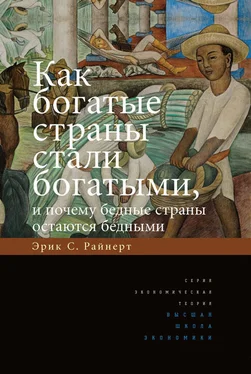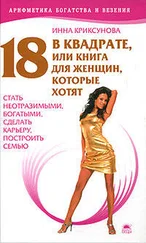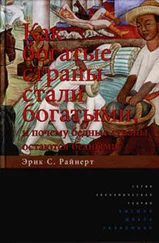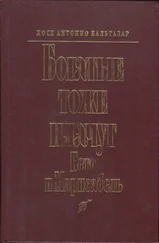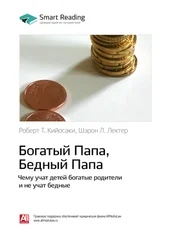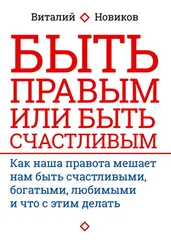Perez Carlota. Technological Revolutions and Financial Capital. The Dynamics of Bubbles and Golden Ages, Edward Elgar, Cheltenham, 2002.
Perez Carlota. ‘Technological Revolutions, Paradigm Shift and Socio-Institutional Change’ in ErikS. Reinert (ed.), Globalization, Economic Development and Inequality: An Alternative Perspective, Edward Elgar, Cheltenham, 2004.
Perez Carlota, Luc Soete. ‘Catching Up in Technology: Entry Barriers and Windows of Opportunity in G.Dosi et al. (eds), Technical Change and Economic Theory, Pinter, London, 1988, p. 458–479.
Pfeiffer Johann Friedrich von. Vermischte Verbesserungsvorschläge und freie Gedanken, vol. 2, Esslinger, Frankfurt, 1778.
Pfeiffer Johann Friedrich von. Der Antiphysiokrat, oder umständliche Untersuchung des sogenannten physiokratischen Systems für eine allgemeine Freyheit und einzige Auflage auf den reinen Ertrag der Grundstücke, Schäfer, Frankfurt am Main, 1780.
Pfeiffer Johann Friedrich von. Grundsätze der Universal-Cameral-Wissenschaft oder deren vier wichtigsten Säulen, nämlich der Staats-Regierungskunst, der Policey-Wissenschaft, der allgemeinen Staats-Oekonomie, und der Finanz-Wissenschaft, 2 volumes, Esslingersche Buchhandlung, Frankfurt, 1783.
Polanyi Karl. The Great Transformation, Rinehart 8í Co., New York, 1944.
Polanyi Karl. Conrad Arensberg and Harry Pearson, Trade and Markets in the Early Empires, Free Press, New York, 1957.
Pommeranz Kenneth. The Great Divergence: China, Europe, and the Making of the Modern World Economy, Princeton University Press, Princeton, 2000.
Porter Michael. The Competitive Advantage of Nations, Free Press, New York, 1990
[Putumayo Affair] Report by His Majesty’s Consul at Iquitos on his Tour in the Putumayo district, Presented to both Houses of Parliament by Command of His Majesty, His Majesty’s Stationery Office, London, 1913.
Quesnay François. Traité des Effets et de l’Usage de la Saignée, d’Houry, Paris, 1750.
Rae John. Statement of Some New Principles on the Subject of Political Economy, Exposing the Fallacies of the System of Free Trade, and of Some Other Doctrines Maintained in the ‘Wealth of Nations’, Hilliard, Gray & Co., Boston, 1834.
Raymond Daniel. Thoughts on Political Economy, Fielding Lucas, Baltimore, 1820.
Reder Melvin. Economics. The Culture of a Controversial Science, University of Chicago Press, Chicago, 1999.
Reinert Erik. International Trade and the Economic Mechanisms of Underdevelopment, Ph. D. thesis, Cornell University, 1980.
Reinert Erik. ‘Catching-up From Way Behind — A Third World Perspective on First World History’ in Jan Fagerberg, Bart Verspagen and Nick von Tunzelmann (eds), The Dynamics of Technology, Trade, and Growth, Edward Elgar, Aldershot, 1994, p. 168–197.
Reinert Erik. ‘Competitiveness and Its Predecessors — a 500-Year Cross-National Perspective’ in Structural Change and Economic Dynamics, 1995, vol. 6, p. 23–42.
Reinert Erik. ‘The Role of Technology in the Creation of Rich and Poor Nations: Underdevelopment in a Schumpeterian System’ in Derek H. Aldcroft and Ross Catterall (eds), Rich Nations — Poor Nations. The Long Run Perspective, Edward Elgar, Aldershot, 1996, p. 161–188.
Reinert Erik. ‘Diminishing Returns and Economic Sustainability: The Dilemma of Resource-Based Economies Under a Free Trade Regime’ in Stein Hansen, Jan Hesselberg and Helge Hveem (eds), International Trade Regulation, National Development Strategies and the Environment: Towards Sustainable Development? Centre for Development and the Environment, University of Oslo, Oslo, 1996, p. 119–150.
Reinert Erik. ‘Raw Materials in the History of Economic Policy; or, Why List (the Protectionist) and Cobden (the Free Trader) Both Agreed on Free Trade in Corn’ in Gary Cook (ed.), The Economics and Politics of International Trade. Freedom and Trade, vol. II, Routledge, London, 1998, p. 275–300.
Reinert Erik. ‘The Role of the State in Economic Growth’ in Journal of Economic Studies, 26 (4/5), 1999, p. 268–326. A shorter version can be found in Pier Angelo Toninelli (ed.), The Rise and Fall of State-Owned Enterprises in the Western World, Cambridge University Press, Cambridge, 2000, p. 73–99.
Reinert Erik. ‘Karl Bücher and the Geographical Dimensions of Techno-Economic Change’ in Jürgen Backhaus (ed.), Karl Bücher: Theory — History — Anthropology— Non-Market Economies, p. 177–222, Metropolis, Marburg, 2000.
Reinert Erik. ‘Full Circle: Economics from Scholasticism through Innovation and back into Mathematical Scholasticism’ in Journal of Economic Studies, 2000, vol. 27, no. 4/5, p. 364–376.
Reinert Erik. ‘Schumpeter in the Context of Two Canons of Economic Thought’ in industry and Innovation, 2002, vol. 6, no. 1, p. 23–39.
Reinert Erik. ‘Increasing Poverty in a Globalised World: Marshall Plans and Morgenthau Plans as Mechanisms of Polarisation of World Incomes’ in Ha-Joon Chang (ed.), Rethinking Economic Development, Anthem, London, 2003, p. 453–478.
Reinert Erik. ‘Globalisation in the Periphery as a Morgenthau Plan: The Underdevelopment of Mongolia in the 1990s’ in ErikS. Reinert (ed.), Globalization, Economic Development and Inequality: An Alternative Perspective, Edward Elgar, Cheltenham, 2004, p. 115–156.
Reinert Erik. ‘Benchmarking Success: The Dutch Republic (1500–1750) as seen by Contemporary European Economists’ in How Rich Nations got Rich. Essays in the History of Economic Policy, Working Paper No. 1, SUM-Centre for Development and the Environment, University of Oslo, 2004, p. 1–24; also at http://www.sum.uio.no/publications; and in Oscar Gelderblom (ed.), The Political Economy of the Dutch Republic, Ashgate, Aldershot, forthcoming 2007.
Reinert Erik. ‘German Economics as Development Economics: From the Thirty Years War to World War II’ in Jomo К. S. and ErikS. Reinert (eds),Origins of Development Economics, Zed Publications, London and Tulika Books, New Delhi, 2005, p. 48–68.
Reinert Erik. ‘A Brief Introduction to Veit Ludwig von Seckendorff (1626–1692)’ in European Journal of Law and Economics, 19, 2005, p. 221–230.
Reinert Erik. ‘Development and Social Goals: Balancing Aid and Development to Prevent ‘Welfare Colonialism’ in United Nations Department of Economic and Social Affairs, DESA Working PaperNo. 14, 2006; downloadable at http://www.un.org/esa/desa/papers/
Reinert Erik. ‘The Economics of Reindeer Herding: Saami Entrepreneurship between Cyclical Sustainability and the Powers of State and Oligopolies’ in British Food Journal, 2006, vol. 108, no. 7, p. 522–540.
Reinert Erik. ‘Institutionalism Ancient, Old and New: a Historical Perspective on Institutions and Uneven Development’, Research PaperNo. 2006/77, United Nations University, WIDER, Helsinki; downloadable at http://www.wider.unu.edu/publications/publications.htm
Reinert Erik. ‘European Integration, Innovations and Uneven Economic Growth: Challenges and Problems of EU 2005’ in Román Compañó et al. (eds), The Future of the Information Society in Europe: Contributions to the debate, Seville, Spain, European Commission, Directorate General Joint Research Centre. Institute for Prospective Technological Studies (IPTS), p. 124–152; downloadable as Working Paper No. 5 at http://hum.ttu.ee/tg/
Reinert Erik, Arno Daastol. ‘Exploring the Genesis of Economic Innovations: The Religious Gestalt-Switch and the Duty to Invent as Preconditions for Economic Growth’ in European Journal of Law and Economics, 1997, vol. 4, no. 2/3, p. 233–283, and in Christian Wolff. Gesammelte Werke, Illrd series, vol. 45, Georg Olms Verlag, Hildesheim, 1998.
Читать дальше
